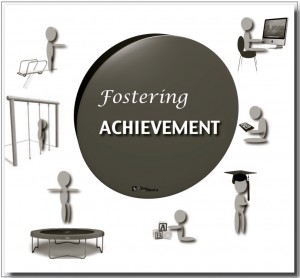“Gimme a break, gimme a break, break me off a piece of that Kit Kat bar” – many of us have been there. The all-giving, dedicated counsellor is exhausted at the end of the day having given so much to our clients, colleagues and employers. We reach for that little reward – food, drink, bed, TV, and we collapse into the abyss of mindlessness or sleep to awaken to another day of emotional yet essential and passionate service to others.
Over time, the daily work and commitment of counselling can manifest itself in unhealthy responses to stress resulting in weight and health issues, withdrawal or retreat, anxiety, depression, or an overall lack of joy. That feeling of being a hamster on a wheel despite, and maybe because of, your passionate love of “your wheel”; your profession. In many different forms, compassion fatigue can rob you of your energy, deflate relationships and create a subtle but definite disconnect with your daily life.
The need to be mindful vs mindlessness is ever-growing in our profession.
Yes, we should all feel that it is okay, actually imperative, to focus on our self-care but often there is a guilt associated with looking after ourselves versus others. I’ve often called it a “counselling curse”. Empathy and service to others trumps self-compassion. Often early in our careers we pave the road to vicarious trauma and compassion fatigue. I feel these are two major thieves of our daily joy, health and peace.
We all read and listen to messages at local conferences, on blogs, and webinars to “provide self-care” and we all fully agree with that message, on a rational level. But how can you make it a reality and a constant in the forefront of your practice and life? Can we concretely plan or create self-care? Generalize it to our daily life practices? In our hurried world of could-haves, should-haves, would-haves, the first step to manifesting any change starts in our heads and hearts.
First Step.
Do absolutely nothing.
You may very well need a rest. Allow true mindless in. Sit, nap, journal – follow your mind’s natural path – this can often show you many of your own thoughts, worries and needs. If you can do this by integrating walks, hikes, nature, all the better. If you have developed mental health issues associated with compassion fatigue, please seek professional support. NO shame! As a counselling professional of over 25 years – been there, done that and will continue to seek whenever needed. NO apologies! Then, read about others and their minds. You can read self-help books but also those stories of people you admire, or even “disaster stories” (where life went wrong) with many lessons to be learned of misplaced priorities and regrets.
Second step.
Get a grip – Take stock and gratitude daily.
Take a long look around and see where are you in your life. Are you healthy? Are you happy? What makes you happy? What do you dread every day? Journal if that helps you, walk or talk with yourself and be open to hearing honestly what is good, what’s missing and what would make you feel more at peace or “peace-full” every day.
Also, truly listen and see what things you regret and how those things and relationships could be changed even gently. The power of change is one of our fundamental beliefs as counsellors and psychotherapists. Change is possible for us as well.
Think on your relationships and what you owe your family, significant others and most important yourself. Start to consider how to commit to those people and then learn to include yourself in that commitment daily. For me, this was integral as this helped me learn stepwise, that giving to myself was the best step to giving to family, and also my clients. (Had to do it for others first but getting there).
Thirdly.
Manipulate your mindset.
Sometimes we overthink and rationalize to our own detriment. Perhaps we need to build a rationale that “allows” us to take a break. Maybe it’s okay because we are learning new skills and perhaps a new naturopathic approach to healing, mindfulness workshops or training etc., to complement our counselling work. Think always about what you would like to learn, what motivates you, your passions and then start to weave these things into your life and career plans. Self-care sneaks in and can become a natural consequence and an amazing byproduct.
After this self-assessment, and during it actually, look at any and all possibilities to create self-care daily, monthly and long term. A few ideas in no particular order follow that I have woken up to (after 25 years as a counsellor) and have started to use or integrate in my own counselling practice and life:
Creating your own self-care plan
Financing self-care – money is always an object or is it? Use the money, options and health plans you may already have in place but you don’t think on daily.
- “Sick” or leave days – use them or lose them. I dislike the negative connotation of sick days and firmly believe in attending to your physical and mental health days. When you delay or defer these days, you are likely to develop further issues and illnesses.
- Our health care and insurance plans (Counselling, Massage, Naturopath Services, Dietitian, etc.)
- How often have you finished another work year and realized that you had coverage for services you never even used but could have benefited tremendously? Just a thought. You could be paying for these services every month or pay-cheque. Allow yourself to engage in what could help take care of you.
- Mini Vacations
- Professional learning is also all around us and can equally benefit us and our clients. On-demand webinars and workshops on stress, meditation, mindfulness exist, as does professional learning experiences in places you want to see or places you would like to go. Grants are often available to help you with cost and provide you important learning, as well as a change of scenery or rejuvenation. There is also much benefit from the connection with fellow counsellors and in being around those who know or understand our work.
- Deferred salary leave plans
- Deferred salary leave plans can be a wonderful way to create a long-term plan for self-care. Readers should investigate whether their employers and respective workplaces offer this option as a first step. It can be a viable option here in Newfoundland and Labrador for many public sector employees. Consult Human Resources personnel in your place of employment to discuss of particulars with regard to requirements and benefits of these types of options. Long story short, deferred salary plans may be a means for some colleagues to planning self-care longer term – to rejuvenate, pursue personal, family, and/or professional goals.
- “Lunchables”
- Don’t have a full day or afternoon, then make the time for coffee or quick lunch. A quick break away or a coffee run, a drive can be a change of scenery and change can be as good as a rest. Connect with others but have boundaries on time and select places you enjoy.
- Commit to you by including others (you like)
- Plan it – Build connection into your day or week or month and make the commitment to other people – connect with those who help you to laugh, reflect, get outside, exercise – whatever it is you feel you need for peace and joy.
- Continue to Tweak it
- Try new things and add new elements – walk n’ talks, yoga, painting, meditation anything you love or would love to try. As counsellors who wants to continually improve our practice, look to your passions and the things you personally enjoy! You can learn about, practice, teach and model much of this for your clients. An authentic life and counselling practice is always amazing and powerful!! Do as I do not as I say. Who knows, imposter syndrome may start to slide away? But that’s a topic for another post.
Think, talk and always take care,
Gloria
*The views expressed by our authors are personal opinions and do not necessarily reflect the views of the CCPA





